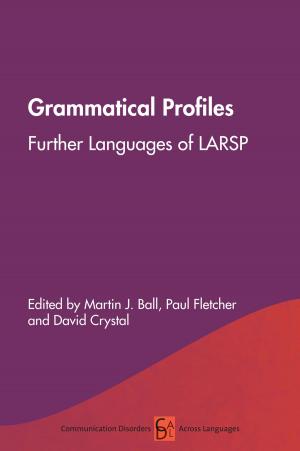Language Learning Strategies in Independent Settings
Nonfiction, Reference & Language, Language Arts, Study & Teaching, Education & Teaching| Author: | ISBN: | 9781788920629 | |
| Publisher: | Channel View Publications | Publication: | October 3, 2008 |
| Imprint: | Multilingual Matters | Language: | English |
| Author: | |
| ISBN: | 9781788920629 |
| Publisher: | Channel View Publications |
| Publication: | October 3, 2008 |
| Imprint: | Multilingual Matters |
| Language: | English |
Language learning strategies have been a topic of research for roughly three decades. Broadly speaking, that research has focused on classroom tuition, predominantly at secondary level. Increasingly, however, language learning occurs in independent settings, whether at distance, on Institution-Wide Language Programmes (IWLPs), or in virtual environments. Success in independent language learning is achieved by autonomous individuals with a capacity for self-regulation. Yet we still know relatively little about the specific means they use to learn effectively, whether in terms of the affective strategies they employ to sustain motivation, the metacognitive strategies required for planning, monitoring and evaluating their learning, or the specific cognitive strategies applied to difficult learning tasks. These are all discussed and evaluated in Language Learning Strategies in Independent Settings.
Language learning strategies have been a topic of research for roughly three decades. Broadly speaking, that research has focused on classroom tuition, predominantly at secondary level. Increasingly, however, language learning occurs in independent settings, whether at distance, on Institution-Wide Language Programmes (IWLPs), or in virtual environments. Success in independent language learning is achieved by autonomous individuals with a capacity for self-regulation. Yet we still know relatively little about the specific means they use to learn effectively, whether in terms of the affective strategies they employ to sustain motivation, the metacognitive strategies required for planning, monitoring and evaluating their learning, or the specific cognitive strategies applied to difficult learning tasks. These are all discussed and evaluated in Language Learning Strategies in Independent Settings.















